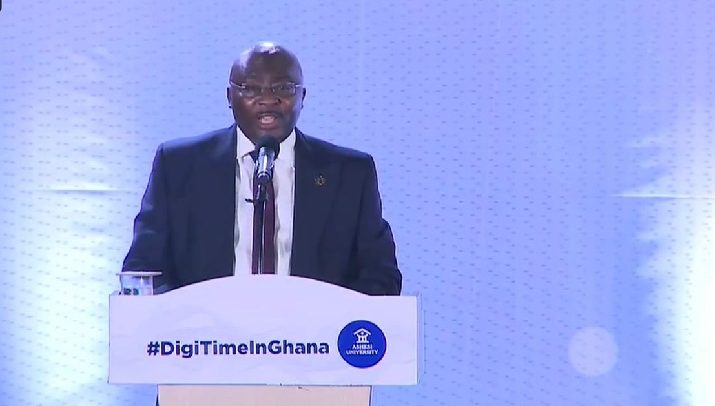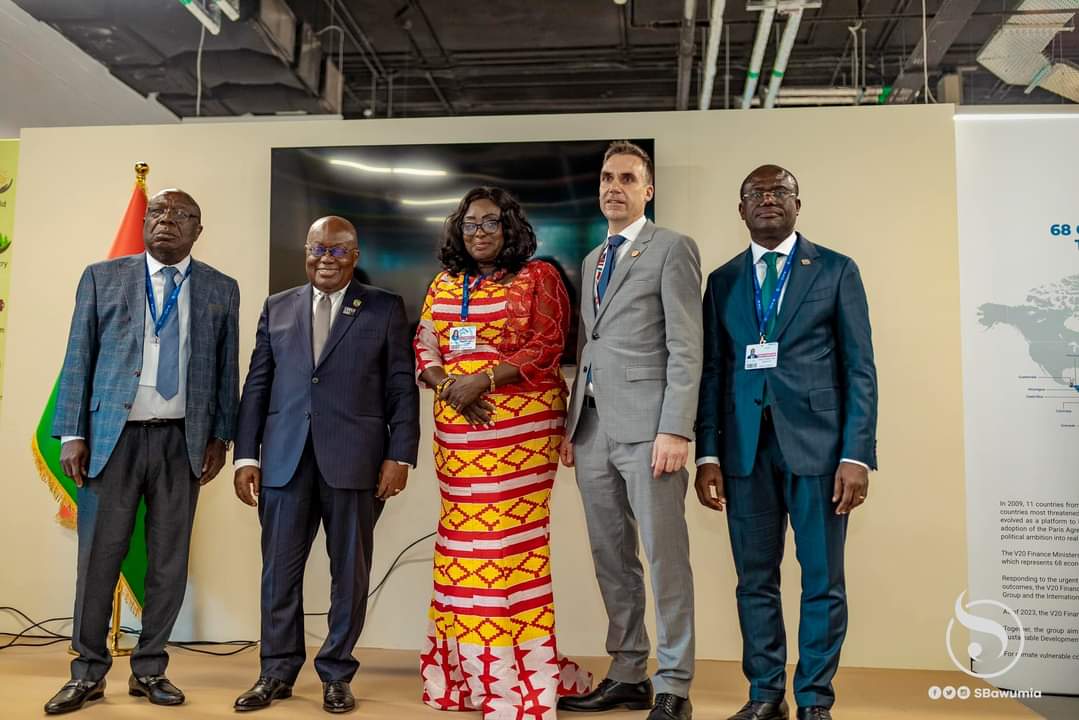

 Ghana is actively exploring how to leverage climate finance to reduce emissions and improve productivity while elevating incomes, especially for smallholder farmers, who are the backbone of the agricultural economy.
Ghana is actively exploring how to leverage climate finance to reduce emissions and improve productivity while elevating incomes, especially for smallholder farmers, who are the backbone of the agricultural economy.
Mr Eric Opoku, the Minister of Food and Agriculture, said the move would require stronger cooperation, greater transparency, and an inclusive approach that respect human rights and indigenous knowledge.
The Minister was speaking at the opening of a two-day Africa Sustainable Commodities Initiative (ASCI) 9th Regional Meeting in Accra.
The two-day meeting, co-hosted by Proforest and Solidaridad, brings together a high-level delegation of ministers, government officials, civil society actors, and private sector leaders from– Cameroon, Central African Republic, Côte?d’Ivoire, Democratic Republic of Congo, Gabon, Ghana, Liberia, Nigeria, Republic of Congo and Sierra Leone, representing 75 per cent of Africa’s tropical forests and 25 per cent globally.
ASCI is a multi-stakeholder platform that puts producer countries in Africa at the forefront of defining the principles for the sustainable development of cocoa, rubber, palm oil, coffee and other commodities, in a way that protects livelihoods and natural resources.
He commended ASCI, Proforest, Solidaridad, and all stakeholders for creating a platform where public, private, and civil society actors could come together to craft solutions that were not only environmentally sound but also socially just.
He said as ASCI broadens its scope to include multiple commodities, the imperative to scale up sustainable financing, accelerate responsible investment, and empower smallholders had become even more urgent.
He said as the government Focal Point for the ASCI, the Ministry of Food and Agriculture affirmed its unwavering commitment to building deforestation-free, climate-smart supply chains that were aligned with Ghana’s development priorities.
“This commitment is embedded in our Nationally Determined Contributions (NDCs) and Ghana’s evolving Long-Term Low Emissions Development Strategy (LT-LEDS),” he said.
The Minister said it was also reflected in its continued efforts to balance agricultural expansion with forest protection, livelihood resilience, and responsible investment.
Mr Opoku said Ghana had taken bold steps, particularly in the tree crop sector, through the establishment of the Tree Crops Development Authority (TCDA).
He said the institution played a pivotal role in regulating and supporting the sustainable growth of priority crops such as oil palm, rubber, coconut, mango, cashew, and shea.
“By promoting best practices, enforcing sustainability standards, and fostering market access for smallholders, the TCDA is helping to reshape the future of Ghana’s non-cocoa tree crop landscape,” he said.
“Let us seize this opportunity not just to share knowledge, but to align our actions. Let this meeting be a springboard for deeper commitments, tangible investments, and greater impact at the grassroots level,” he added.
Mr Eric Amoako Agyare, Ghana Country Representative, Solidaridad West Africa, said Solidaridad had been active in West Africa’s oil palm sector since 2012, working to improve yields at both the farm and mill levels through the introduction of Best Management Practices (BMP).
He said it was also to improve processing technology, through funding support of the Embassy of the Netherlands in Ghana.
He said since 2024, Solidaridad and IDH were implementing the National Initiatives for Sustainable and Climate-smart Oil Palm Smallholders (NISCOPS) programme, with funding support from the Dutch Ministry of Foreign Affairs and the UK Foreign, Commonwealth & Development Office (FCDO).
NISCOPS seeks to ensure that oil palm landscapes are sustainably managed, and smallholder farmers measurably benefit from being part of the supply chain.
He said over the four-year programme period, the NISCOPS would continue to strengthen partnerships with private sector actors to build resilient oil palm landscapes through multi-stakeholder platforms focused on ensuring better incomes and inclusive markets for smallholder farmers.
Mr Abraham Baffoe, Executive Director, Proforest, said there had been changes in policy and capacity, driven by ASCI over the last 10 years, creating the enabling environment for sustainable development of the agricultural sector.
He said a regional meeting was organised to share progress made by member countries in creating enabling policies for responsible production of agricultural commodities and to identify opportunities for effective implementation of the national principles and actions.
He said the progress made by the initiative was a testament to our collective resolve and a resolve to balance the undeniable need for economic development with commitment to environmental sustainability.
The initiative has enormous potential to facilitate producer-consumer partnerships that are required to ensure compliance not only with national laws but also demand side measures such as the European Union Deforestation Regulation (EUDR).
Source: GNA
The post Ghana actively exploring ways to leverage climate finance to reduce emissions-Minister appeared first on Ghana Business News.
Read Full Story





Facebook
Twitter
Pinterest
Instagram
Google+
YouTube
LinkedIn
RSS